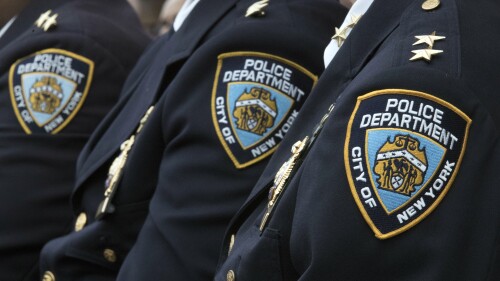By Steve LeBlanc
Associated Press
BOSTON — Massachusetts Gov. Maura Healey took action Wednesday to immediately implement a sweeping new gun law that cracks down on privately made, unserialized “ghost guns,” criminalizes possession of bump stocks and trigger cranks and requires applicants for a gun license to complete live-fire training,
The new law was approved in July and was set to take effect later this month.
The action by Healey frustrates efforts by gun rights activists who had hoped to gather enough signatures to suspend the law before it took effect.
The law also expands the state’s “red flag” law to let police as well as health care and school officials alert the courts if they believe someone with access to guns poses a danger and should have their firearms taken away, at least temporarily.
“This gun safety law bans ghost guns, strengthens the Extreme Risk Protection Order statute to keep guns out of the hands of people who are a danger to themselves or others, and invests in violence prevention programs,” Healey said in a statement. “It is important that these measures go into effect without delay.”
Gun rights advocates have called the measure an “historic attack on our civil rights” saying it places unnecessary barriers to law-abiding residents seeking to own a gun.
Activists have been looking to suspend the law until voters can weigh in on a potential 2026 referendum that would repeal it. To keep it from taking effect, they needed to file at least 49,716 signatures from registered voters, which will also help guarantee the question is placed on the ballot.
Healey’s decision to put the law into effect immediately blocks any temporary suspension of the law.
The law was enacted in part as a response to the Supreme Court’s 2022 Bruen decision declaring citizens have a right to carry firearms in public for self-defense.
A federal lawsuit also filed by gun advocates argues that the Massachusetts law is unconstitutional, characterizing it as “onerous firearms legislation that imposes sweeping arms bans, magazine restrictions, registration requirements, and licensing preconditions that are as burdensome as they are ahistorical.”
The suit — which cites the Bruen decision — asks the federal court to issue a temporary restraining order or preliminary injunction barring the state from enforcing the “burdensome licensing regimes on the possession and carry of firearms for self defense.”
The Massachusetts law prohibits people who aren’t part of law enforcement from carrying guns at schools, polling locations and government buildings. It also requires those applying for a license to carry firearms to demonstrate a basic understanding of safety principles and provides local licensing authorities with relevant mental health information.
District attorneys would be able to prosecute people who shoot at or near homes, which also seeks to ensure people subject to restraining orders no longer have access to guns.
The new law also expands the definition of “assault weapons” to include known assault weapons and other weapons that function like them. It bans the possession, transfer or sale of assault-style firearms or large-capacity feeding devices.






